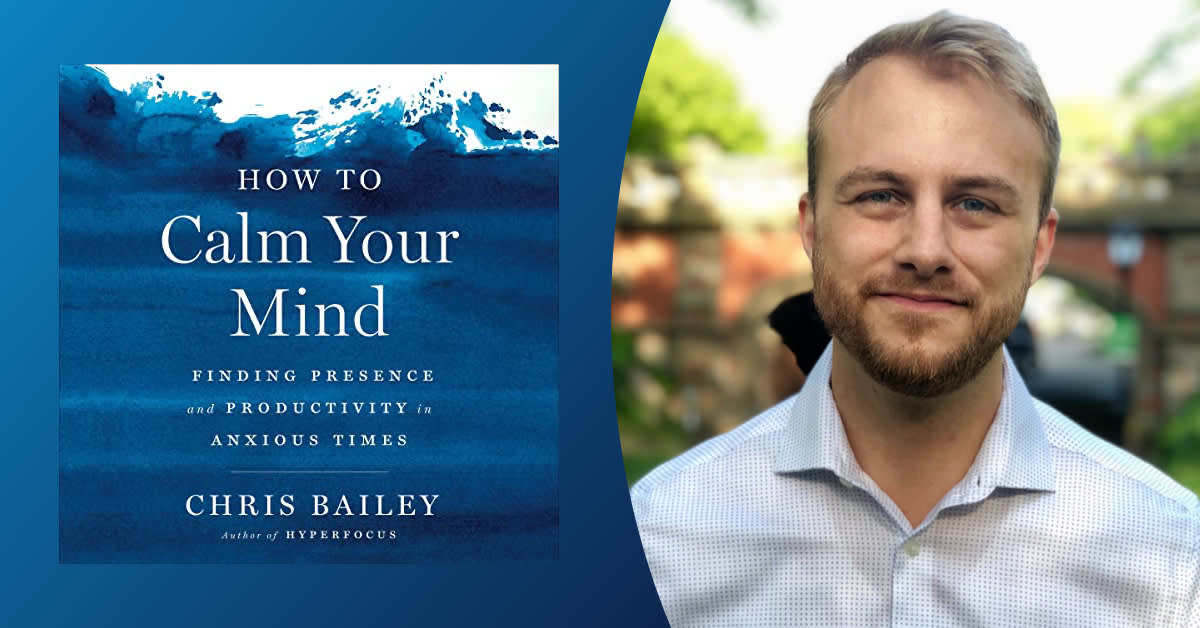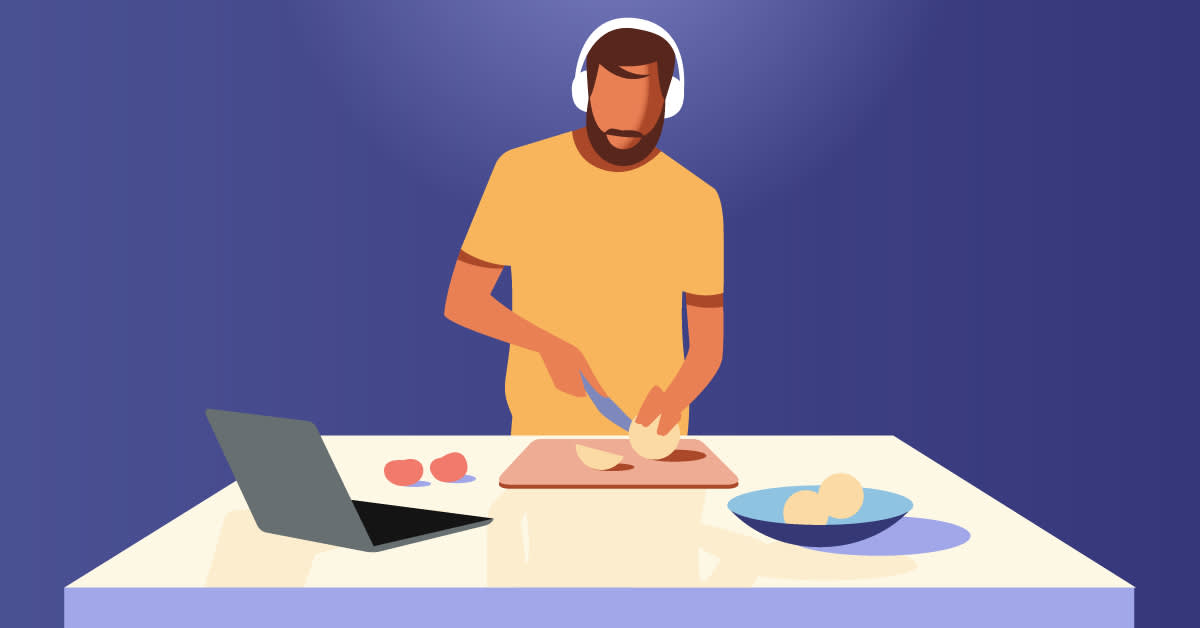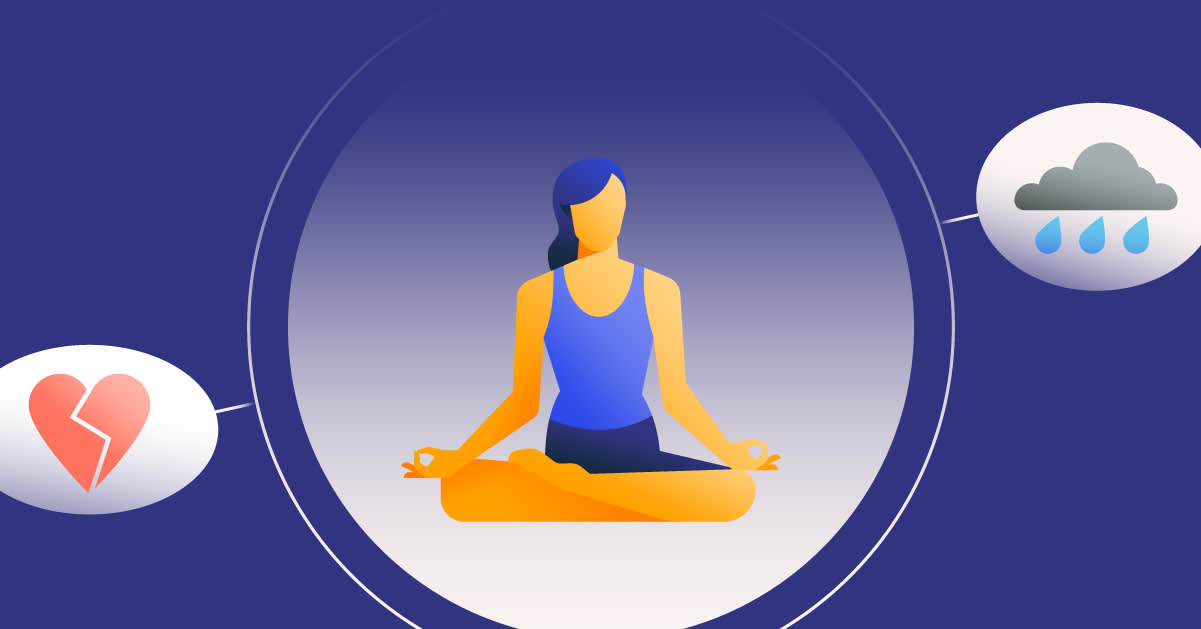As the bestselling author of self-optimization titles like The Productivity Project and How to Train Your Mind, Chris Bailey wasn't naturally drawn to inaction. But after bouts of burnout and anxiety led him to research the link between productivity and calm, he learned firsthand how implementing rest and mindfulness could improve his own well-being. In How to Calm Your Mind, Bailey divulges the latest science-backed insights and positive lifestyle changes to combat stress and improve focus.
Audible: What inspired you to write How to Calm Your Mind?
Chris Bailey: I wrote How to Calm Your Mind after finding myself in an abyss of burnout and anxiety. As someone who writes about productivity for a living, this made me pause and question my own habits, self-care techniques, and work boundaries. The experience motivated me to pore through all the research I could find about burnout and anxiety, chat with experts from around the world, and run a bunch of experiments on myself to get to the bottom of things.
Along the way, I uncovered countless insights and ideas that surprised me—as well as tactics that helped me overcome the struggles I was facing. I wanted to write this book to share my journey through anxiety and burnout in hopes that these lessons will help others in the same way they helped me.
Why do listeners need to hear How to Calm Your Mind right now?
I think what makes this book so urgent and valuable is how the advice is not only rooted in science but also applies directly to the unique situation we’re in right now.
Most people will likely agree that we’re at a pretty stressful moment in time. Much of this stress is hidden, buried so deep in our lives and everyday routines that we hardly notice it. We’re also surrounded by countless stimulating distractions, which release the neurotransmitter dopamine in our mind. These stimuli pull us out of the moment while making us less present and calm. Finally, we have a natural tendency to strive for more at all costs—and this constant striving, enabled by technology, prevents us from enjoying life.
In writing this book, I quickly realized how much advice exists on overcoming burnout and anxiety—and how much of that guidance is fluff that isn’t based on any sort of evidence. Life advice must be rooted in science—it needs to understand the way we’re biologically wired if it’s really going to work. This is what I hope listeners find in How to Calm Your Mind.
How has your lifestyle changed since your personal pursuit of overcoming anxiety? What effects have you seen to your overall well-being?
My life has changed in a lot of curious ways. I spend far more time in the analog world and less time in the digital one (though most of my work still happens there). I have a renewed capacity to enjoy my life, especially since I now practice more of the science of “savoring”—the process through which we convert positive experiences into positive emotions. I have more patience and peace of mind when things don’t go as expected. And I notice that my work feels much more effortless as I’ve become more engaged and calm (research shows that engagement is the opposite of burnout). While I still have stress in my life—who doesn’t?—I relate and react to that stress in entirely different ways. It no longer weighs on me.
The cumulative effects of these changes are profound, and I hope listeners will experience that in their own lives too.
What do you want listeners to understand about the relationship between calm and productivity?
Productivity is often associated with this “hustle hard” mentality. But I want listeners to know they’ll be more productive with a calm mind.
Though it may seem counterintuitive, cultivating a personal sense of calm is an investment in productivity. We get more done in less time when we work calmly and deliberately. With a quieter mind, we have greater attention to give to what’s in front of us, and we become more deeply immersed in what we’re doing. We are less likely to spiral into a cycle of threatening thoughts, emails, and deadlines. A calm mind even expands the size of our working memory—the mental scratchpad we use to process and connect information. In these many ways, being calm makes us more productive.
In an anxious world, finding calm really is one of the best productivity strategies around.







